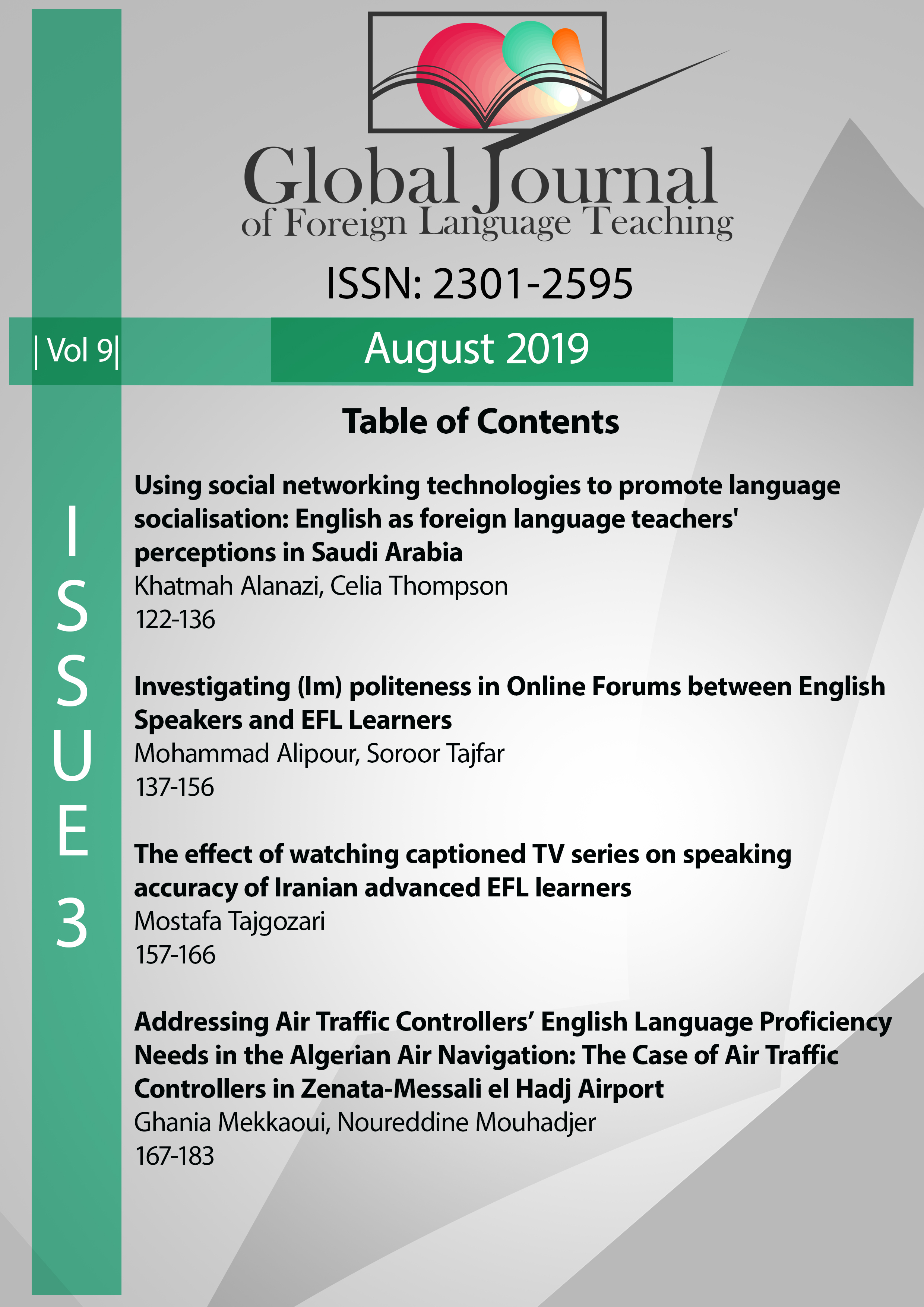Using social networking technologies to promote language socialisation: English as foreign language teachers' perceptions in Saudi Arabia
Main Article Content
Abstract
Teachers’ beliefs play a key role in their selection of language teaching methodologies; they affect teachers’ pedagogical practices and behaviours and are consequently integral in shaping the language learning classroom environment. This study investigated the beliefs of teachers of English as a foreign language (EFL) in relation to the concept of ‘language socialisation’ (LS) and its pedagogical application through the use of social networking technologies (SNTs) in a Saudi university language learning context. Data comprised a survey, which was administered to a total of 28 EFL teachers, of whom five male instructors were interviewed. Findings showed that the majority of teachers reported positive associations with LS as a teaching method, as well as positive responses towards the use of SNTs in the EFL classroom despite the fact that most participants had never used SNTs in their teaching. It can be concluded that, while the EFL teachers in this study acknowledged the potentially important role that SNTs could play in enhancing students’ language learning and socialisation, their lack of first-hand classroom experience with SNTs reflected the fact that there was little access to and training in the use of these technologies. This lack of provision needs to be addressed as a matter of urgency to ensure that Saudi EFL teachers and their students are given an opportunity to engage critically with innovative technologies that may enhance the quality of their pedagogical experiences.
Keywords: English as foreign language teachers in higher education in Saudi Arabia, English as a foreign language, language socialisation, social networking technologies
Downloads
Article Details

This work is licensed under a Creative Commons Attribution 4.0 International License.
Authors who publish with this journal agree to the following terms:- Authors retain copyright and grant the journal right of first publication with the work simultaneously licensed under a Creative Commons Attribution License that allows others to share the work with an acknowledgement of the work's authorship and initial publication in this journal.
- Authors are able to enter into separate, additional contractual arrangements for the non-exclusive distribution of the journal's published version of the work (e.g., post it to an institutional repository or publish it in a book), with an acknowledgement of its initial publication in this journal.
- Authors are permitted and encouraged to post their work online (e.g., in institutional repositories or on their website) prior to and during the submission process, as it can lead to productive exchanges, as well as earlier and greater citation of published work (SeeThe Effect of Open Access).
